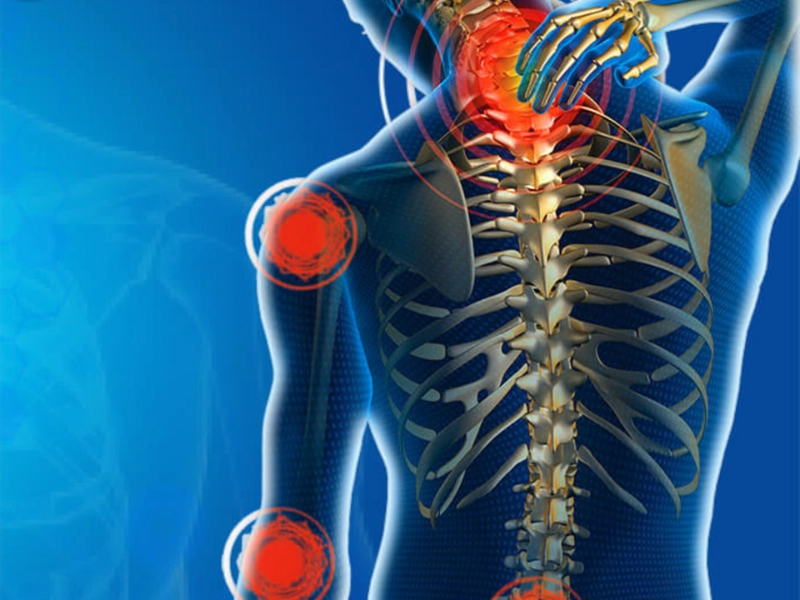Grains for Bone Health: More Than Just Calcium
1. Understanding Bone Health Bone health is crucial for overall well-being, as bones provide structure, protect organs, and store calcium. While calcium is often highlighted as the primary nutrient for bone strength, it is not the only player in this vital process. A well-rounded diet that includes various nutrients is essential for maintaining healthy bones. Grains, often overlooked in discussions about bone health, can significantly contribute to the nutrients necessary for strong bones.
2. The Role of Whole Grains Whole grains, such as brown rice, quinoa, oats, and whole wheat, are rich in essential nutrients that support bone health. These grains contain not only fiber but also vitamins and minerals that play a role in bone density and strength. For instance, whole grains provide magnesium, phosphorus, and B vitamins, which are all important for maintaining healthy bones. Incorporating whole grains into your diet can help ensure you receive these vital nutrients.

 5. The Importance of Vitamin B B vitamins, particularly B6, B12, and folate, are vital for bone health and can be found in various whole grains. These vitamins play a role in the synthesis of collagen, a protein that provides structure to bones and connective tissues. A diet rich in B vitamins can help improve bone health by supporting collagen production, which is essential for maintaining the integrity of the skeletal system.
6. Fiber and Bone Health The fiber content in whole grains also contributes to bone health indirectly. A high-fiber diet can help regulate body weight, which is important for maintaining bone density. Excess weight can put additional stress on bones, increasing the risk of injury and fractures. Moreover, fiber aids in digestion and nutrient absorption, ensuring that the body effectively utilizes the vitamins and minerals necessary for bone health.
5. The Importance of Vitamin B B vitamins, particularly B6, B12, and folate, are vital for bone health and can be found in various whole grains. These vitamins play a role in the synthesis of collagen, a protein that provides structure to bones and connective tissues. A diet rich in B vitamins can help improve bone health by supporting collagen production, which is essential for maintaining the integrity of the skeletal system.
6. Fiber and Bone Health The fiber content in whole grains also contributes to bone health indirectly. A high-fiber diet can help regulate body weight, which is important for maintaining bone density. Excess weight can put additional stress on bones, increasing the risk of injury and fractures. Moreover, fiber aids in digestion and nutrient absorption, ensuring that the body effectively utilizes the vitamins and minerals necessary for bone health.
 7. Anti-Inflammatory Properties Chronic inflammation can negatively impact bone health, leading to conditions like osteoporosis. Whole grains contain various antioxidants and anti-inflammatory compounds that can help reduce inflammation in the body. By incorporating whole grains into your diet, you may lower the risk of inflammation-related bone issues, promoting long-term skeletal health.
8. How to Incorporate Grains into Your Diet Incorporating whole grains into your daily meals is simple and versatile. Start your day with oatmeal or whole-grain toast, add quinoa or brown rice to salads and stir-fries, or snack on whole-grain crackers. Experimenting with different grains can keep your meals interesting while providing the nutrients necessary for bone health. Aim to replace refined grains with whole grains for maximum benefits.
7. Anti-Inflammatory Properties Chronic inflammation can negatively impact bone health, leading to conditions like osteoporosis. Whole grains contain various antioxidants and anti-inflammatory compounds that can help reduce inflammation in the body. By incorporating whole grains into your diet, you may lower the risk of inflammation-related bone issues, promoting long-term skeletal health.
8. How to Incorporate Grains into Your Diet Incorporating whole grains into your daily meals is simple and versatile. Start your day with oatmeal or whole-grain toast, add quinoa or brown rice to salads and stir-fries, or snack on whole-grain crackers. Experimenting with different grains can keep your meals interesting while providing the nutrients necessary for bone health. Aim to replace refined grains with whole grains for maximum benefits.
 9. Balancing Nutrient Intake While grains play a significant role in bone health, it is essential to maintain a balanced diet that includes a variety of foods. Alongside whole grains, ensure you consume adequate amounts of fruits, vegetables, dairy or dairy alternatives, and protein sources. This diverse diet will provide a comprehensive range of nutrients that work together to support bone health.
10. Summary of Grains’ Role in Bone Health Grains are an essential component of a bone-healthy diet, offering more than just calcium. With their rich content of magnesium, phosphorus, B vitamins, and fiber, whole grains contribute significantly to maintaining strong bones. By incorporating a variety of whole grains into your meals, you can support your skeletal system and promote overall health. Emphasizing the importance of grains in your diet can lead to improved bone density and a lower risk of bone-related issues in the future.
9. Balancing Nutrient Intake While grains play a significant role in bone health, it is essential to maintain a balanced diet that includes a variety of foods. Alongside whole grains, ensure you consume adequate amounts of fruits, vegetables, dairy or dairy alternatives, and protein sources. This diverse diet will provide a comprehensive range of nutrients that work together to support bone health.
10. Summary of Grains’ Role in Bone Health Grains are an essential component of a bone-healthy diet, offering more than just calcium. With their rich content of magnesium, phosphorus, B vitamins, and fiber, whole grains contribute significantly to maintaining strong bones. By incorporating a variety of whole grains into your meals, you can support your skeletal system and promote overall health. Emphasizing the importance of grains in your diet can lead to improved bone density and a lower risk of bone-related issues in the future.







